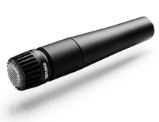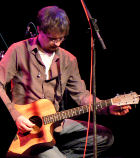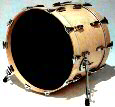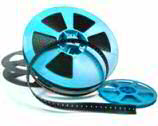 Inspired by Jason Kottke’s awesome digging in the newly-opened NY Times archive, here are some items from the archive documenting music and recording history.
Inspired by Jason Kottke’s awesome digging in the newly-opened NY Times archive, here are some items from the archive documenting music and recording history.
The first reference to Edison’s phonograph seems to be this satirical piece from November, 1877. At least, I hope it’s satirical:
There is good reason to believe that if the phonograph proves to be what its inventor claims that it is, both book making and reading will fall into disuse.
…
The politician, instead of howling himself hoarse on the platform, will have a pint of his best speech put in the hands of each one of his constituents.
I’m not sure I’d want a pint of anything offered by a politician.
The Times’ first description of Edison’s phonograph appears in March of the following year, recounting the demonstration to “an intelligent audience” of a six-tabled array of mysterious instruments.
A June, 1878 article discusses David Hughes invention of the carbon microphone, an “astonishing instrument or apparatus, which opens to our ears a universe of sounds hitherto inaudible.”
Berliner’s gramophone was first mentioned October 24th, 1890.
Jul 19, 1897 saw the earliest reference to Marconi’s “contrivance for wireless telegraphy.”
an electrical machine on a stick with an electric wire wrapped around it. Electric vibrations are transmitted to another stick attached to a receiver. An electric hammer records the dots and dashes.
There’s no reference to Fessenden’s invention of AM radio, nor his first “broadcast” on Christmas Eve, 1906. (Though we wouldn’t really expect one. Fessenden wasn’t recognized as the inventor of modern radio until much later.) However, the prevailing favour of Marconi’s approach is evidenced in this OpEd piece from December, 1907, championing Marconi’s accomplishments from across the pond: “Of ten dispatches from our correspondent in America, nine have been delivered correctly.” Apparently, the “can you hear me now” guy has historical precedent.
Finally, the earliest reference to a music industry I could find appeared February, 1921. Musical instrument manufacturers argued in favour of a uniform sales tax, and against excise and surplus income taxes. Draw your own conclusion from that one.
Tags: history, music-business, radio
 As a songwriter I’m (far too) familiar with writer’s block, and when my creative energy wanes, I’m not above using outside help to keep fresh ideas flowing.
As a songwriter I’m (far too) familiar with writer’s block, and when my creative energy wanes, I’m not above using outside help to keep fresh ideas flowing.
 For most home recordists, working with cheap microphones is a fact of life. “Amateur” and “budget-constrained” are practically synonymous in audio engineering.
For most home recordists, working with cheap microphones is a fact of life. “Amateur” and “budget-constrained” are practically synonymous in audio engineering. I’m amazed when I compare
I’m amazed when I compare  From Gearslutz: How can I treat
From Gearslutz: How can I treat  To play sound our ears and brain understand, a digital audio system must emit an analog signal. The switch from digital to analog is handled by the digital-to-analog converter, usually just called a DAC.
To play sound our ears and brain understand, a digital audio system must emit an analog signal. The switch from digital to analog is handled by the digital-to-analog converter, usually just called a DAC.  I apologize for the dearth of updates on Hometracked this month. I’ve been busy with a few things, and one in particular that bears mentioning.
I apologize for the dearth of updates on Hometracked this month. I’ve been busy with a few things, and one in particular that bears mentioning. Inspired by Jason Kottke’s
Inspired by Jason Kottke’s  “
“ Ben Goldacre writes the fantastic column
Ben Goldacre writes the fantastic column  Like most folk, I enjoyed the recent NY Times’
Like most folk, I enjoyed the recent NY Times’ 